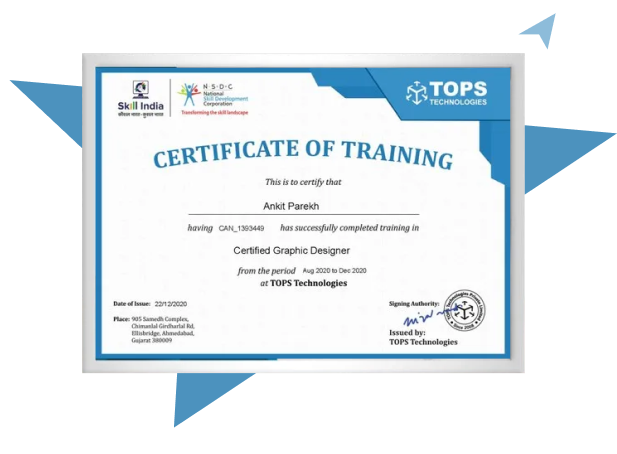Our Facts and Figures
1 Lac+
Student Placed
3000+
Companies TieUp
19+
Offices in India
50+
Industry Courses
Get 100% Job Assistance by enrolling in Certified Software Testing Training Course
Key Highlights
Limited Students Batch
Personalised Attention
Highly Qualified Teachers
Flexible Batch Timings
Interactive Learning
Live Projects
Career Support
Job Oriented Training
Software Testing Course Highlights
As the world becomes increasingly reliant on technology, the demand for qualified software testers is also on the rise. Software testing is predicted to be a $30 billion industry by the year 2024 and the demand for software testing positions has increased by nearly 30% over the past year. This shows that qualified software testers are in high demand and completing a software testing course could lead to a prosperous career in this field.
What is a Software Testing?
Software testing is the process of assessing the quality of software by performing tests. The goal is to identify potential problems in the software before it is released to the public or used in production. Software testing can be divided into two types: functional and non-functional testing.
Functional testing checks that the software performs its intended functions correctly. Non-functional testing looks for problems with how the software behaves, such as crashes or data corruption. Functional and non-functional testing can be done separately or together. There are many different tools and techniques used in software testing, but some of the most common include unit tests, system tests, regression tests, and user interface tests.
Top 3 Benefits of Software Testing
Identify Errors
Software testing helps to get rid of bugs before a client uses a product. No matter how good the software developers and engineers are, untested software always has the chance of having glitches and bugs.Testing will help the product work better because hidden bugs will be found and fixed.
Even just one bug can hurt the reputation of a company that makes software. It can take a long time to get customers to trust you again, so it's much better and easier to make sure testing is done.
Avoid Extra Costs
In addition to the problem of errors, there is also the question of how much it costs to pay back clients whose software has gone wrong. These extra costs can add up to a lot of lost money, because not only is the client unhappy with the product they paid for, but also their time is wasted, which they could have spent on something else.
Because of this, it's not true that software testing is stressful or that testers themselves "break" software. Testers do feed a lot of data into software programs, but this is a necessary part of software testing. If a program can't handle a lot of data, what good is it for businesses or individual customers?
Gain Customers’ Trust
Businesses want the trust of their customers. One way to achieve this is by ensuring that the software is thoroughly tested before it is released. By putting the software through rigorous testing, all the bugs or errors that could cause customer frustration is found and fixed. This not only helps improve the quality of your product, but also instills confidence in customers.
There are many different types of software testing , so it's important to work with a professional testing company to determine the best approach for your product. Taking the time to ensure that your software is as error-free as possible is a crucial step in gaining customer trust.
Industries Which Use Software Testing
There are many different industries that use software testing, some of which are listed below.
- Computer Software
- Telecommunications
- Computer Systems
- Network Systems
- IT Infrastructure
- Software Testing Job Roles And Salary
When it comes to software testing, there are a number of different roles that someone can fill. Here are some of them:
Test Engineer: A test engineer typically is responsible for creating and executing tests. They may also be involved in the development process, ensuring that tests are written in a way that is appropriate for the software being tested. Test engineers typically have a background in engineering or another field related to technology. The annual compensation of a test engineer in India can go up to INR 7 lakhs per annum.
Test Manager: A test manager is responsible for managing the testing process and overseeing the work of test engineers. They may also be involved in the development process, helping to ensure that tests are written in a way that is appropriate for the software being tested. A test manager typically has experience working with developers and other stakeholders involved in software development. The annual pay of up to INR 10 Lakhs per annum can be expected for the position of a test manager in most companies.
UI/UX Tester: UI/UX testers are responsible for testing the user interface and user experience of a software application. They may test applications using simulated user interactions or real user data. UI/UX testers may also conduct research into trends in user behavior to improve the design of applications. The annual income for this position can go up to INR 5.5 lakhs per annum.
Performance Tester: A performance tester is responsible for measuring how well a software system performs under various conditions. They use tools such as load tests and performance analysis to measure how the system handles different amounts of traffic or data. Requirements for becoming a performance tester include strong programming skills and experience working with networked systems. In India, a performance engineer may earn up to INR 8 lakhs per annum as an average income.
Software Testing Training in Gandhinagar for Students & Pros
Gandhinagar being the software hub of Gujarat, there’s no dearth of great job opportunity for the right candidates. TOPS offers Software Testing Training Course where the profession demands a command over scrutinizing software quality and applying skills to generate software testing reports. Also, this course covers security aspects of software training wherein students are taught to protect software from bug invasions invades to keep it secured and smooth-running.
TOPS Technologies at Gandhinagar propels in catering to software Testing in the best possible industry standards. TOPS’ software testing training includes a static and dynamic testing method that keeps you engaged with real-time projects to get acquainted with frequent practicing to test any software precisely, yet efficiently.
The software Testing Training Course at Gandhinagar is distributed in various modules, allowing students to choose the course as per their interest. TOPS offers manual testing, automation testing, mobile testing, and software testing as a part of curriculum training. Get the ideal suggestion about course selection by visiting TOPS Technologies Gandhinagar training center for a free demo. We are committed to delivering thorough knowledge of all courses that help you decide on your interest.
Who can enroll in our Software Testing Course in Gandhinagar at TOPS Technologies?
If you're looking to improve your software testing skills, then you should consider enrolling in our software testing training in Gandhinagar. Our software testing class is designed for beginners and experts alike, so there's no need to feel intimidated or apprehensive about learning new techniques. In fact, our team of experienced educators will help you to understand the basics of software testing, as well as how to apply them in a practical setting.
We offer software tester certification training that will help you become a certified software tester. Our certification training course covers all the topics you need to know to pass the certification exam, and our instructors are experienced professionals who can help you every step of the way.
Whether you're new to software testing or have some experience, our software tester certification course can help you take your career to the next level. Contact us today to learn more about the software testing certification training course and how it can benefit you.
Expert-Curated Software Testing Course in Gandhinagar
Gandhinagar is the capital city of the western Indian state of Gujarat. Shah Jahan started it in 1562, and in 1753 it became the capital of the princely state of Gujarat. The Lal Bagh Gardens and other parts of Gandhinagar are known for their Indo-Islamic architecture.
The IT industry is a big part of the city's economy, and Gandhinagar is the home of many multinational companies. One of the global cities of innovation has also been named the city. Gandhinagar's IT industry has grown over the years because it has a skilled workforce and a good place to do business.
TOPS Technologies are experts in customizing the Software Testing Training Batch at the place of your convenience – colleges and offices. We offer online led classes to learn from your own place. Interested to know more? Email us at inquiry@tops-int.com.
40%
Average Salary Hike
4.5 Lacs
Highest Salary
3000+
Hiring Partners
Join Our Free Upcoming Webinar
Learn the Website Hacks and Provide Better Security
23 Dec 2025, 04:00 PM
Trainer
Faruk Pathan
(Sr. Technical Trainer)
Data Science with AI: Tools, Trends and Real-World Use Cases
24 Dec 2025, 03:00 PM
Trainer
Priya Shah
(Sr. Technical Trainer)
Learn Python in 60 Minutes
25 Dec 2025, 04:00 PM
Trainer
Sanket Chauhan
(Sr. Technical Trainer)
AI in Graphic Design – Future of Creativity
26 Dec 2025, 02:30 PM
Trainer
Parth Patel
(Sr. Technical Trainer)
Software Testing Course Curriculum
Download Curriculum- Introduction to Software Testing
- Introduction of Students
- Career in Software Testing
- Working on Project and Assignment
- Using Lab
- Introduction of Software Engineering
- Software Development Life Cycle (SDLC)
- Software Testing Methodologies (Water fall, Iterative and Incremental, Spiral, Agile, Use Case(Minimum 4 to 5)
- Software Requirement Specifications (SRS)
- Structure Query Language (SQL) With Practical
- Object Oriented Programming(OOP) With Practical
- Fundamentals
- What is Testing?
- Testing Activities
- Test Objectives
- Objectives and purpose
- When and Why Testing?
- When to start and stop Testing?
- 7 Key Principles of Testing
- Error, Bug, Defects, and Causes of Defects
- Quality, Risk: Types of Risks.
- Test Organization :
- (Tester, Test Leader, Test planning, QA v/s QC, Testing V/s Debugging )
- Test Development Process:
- Introduction, Test Analysis, Test Plan, Strategy, HLR, Script, Scenario, Cases, Traceability Start HLR in Practically
- Fundamental Test Process:
- STLC, Psychology of Testing
- Start TestCase in Practically
- Software Development Model:
- (V-Model and RAD)
- Software Testing Levels:
- Unit Testing, Integration Testing, System Testing, Acceptance Testing, Alpha and Beta Testing, Testing definitions as per ISTQB.
- Start Scenario (Positive / negative) Practically(Minimum 21 scenario)
- Test Design Techniques
- Dynamic Testing :
- Functional and Non Functional Testing
- Black Box Testing Techniques
- White Box Testing Techniques
- Experience-Based Testing Techniques
- Maintenance Testing
- Other Testing :
- Smoke and Sanity
- End to End, Retesting and Regression
- Positive and Negative
- Static Testing (Formal, Informal, Types of Review, Estimation Techniques)
- Start Defect Report
- Agile Testing
- Web Application Testing
- Desktop Application Testing
- Mobile Application Testing
- Defect Management and Tracking
- (Introduction, Bug Life Cycle, Defect Management, Reporting, Priority, Severity, Cost)
- Bugzilla
- Fundamentals of Automation Testing
- Introduction of Functional Testing Using Automation Tool
- Selenium IDE with use of Firebug tools
- Introduction of Non-Functional Testing Using Automation Tool :
- Introduction about Load Runner-up
- Load Runner-up procedure
- How to use Load Runner-up
- Load Runner-up IDE
- Generate Single Scripting and Assign V-Users
- Multi Scripting with Grouping
- Parameterization in Load Runner-up
Our TOPS Training Centers in India
Course Key Features
Skills Covered
Job Roles
Get Training Certificate by Government
Recognized NSDC/Skill India

- National Skill Development Corporation
- Supported by the vision of PM Shri Narendra Modi
- Certification by NSDC SkillIndia
- Valid for all Jobs and College Training
- International Recognition

Student Reviews
Mausami Rameshbhai Tandel
Its been nice experience for me in software testing training.
Utsavi Pinakinbhai Patel
I have took Training in TOPS Technologies on Software Testing feild. It was a good experience in taking knowle...
Read MoreAlok Desai
My Experience for Software Testing at Tops Technologies is good. It will help to build my career.
Read MoreMona Sule
Great faculty for learning Software Testing. Trainers are highly experienced and supportive. Thank you Tops Te...
Read MoreChintan Harsukhbhai Chavda
Tops Technologies is one of the perfect institute for developing your IT skills, communication skills and so o...
Read MoreKaran Prakash bhatt
Superb experience in Software Testing from Tops Technologies (Gandhinagar).
Jayshri Prajapati
Lecture of my Software Testing classes is good. Faculty and admin department give good support during classes....
Read MoreApoorva Soni
I have completed my Software Testing Course from TOPS Technologies Gandhinagar Branch. And the placement depar...
Read MoreShreya Rajesh Patel
Had a great time learning Software Testing here from Bhavika Mam. Very helpful and supportive. Thank you Tops...
Read MoreRohini Pardeshi
I have a very good experience in Software Testing from Tops Technologies to learn Technology and find a good j...
Read MoreDhruvil J. Modi
It was really very nice experience with Tops Technologies. I grow my skills in Software Testing and it is a gr...
Read MoreDhara Vaghela
Tops Technologies provided platform to start my carrier in IT industry. I am glad to get training in Software...
Read MoreHimank Vyas
I had no idea about Software Testing but from Tops Technologies I got Knowledge and skills not only about Soft...
Read MorePinkeshkumar Parekh
My name is Pinkesh parekh and I have completed my M.C.A. from Ganpat University. I have taken training from To...
Read MoreKrupa D Karangia
They have superb and helpful atmosphere here. I am thankful to all team of Tops Technologies for helping me in...
Read MoreFAQ
The price of a software testing course in Gandhinagar varies from a few thousand to a few lakhs per month. This is mainly due to the varying quality of the course offered and the location of the institute.
Yes, we offer Software Testing Live Project Training in Gandhinagar. Our trainers are experienced and qualified professionals who will guide you through every step of the testing process, from initial concept and design to final verification and release. In addition, our courses are constantly updated to reflect the latest industry trends and methods, so you can be sure that you're receiving the most up-to-date training possible.
Finding a job in software testing can be difficult, but it doesn't have to be. There are many avenues that you can explore to find the right position for you.
One way to get started is by looking online. There are many websites that list available jobs in software testing. You can also search through career boards and job sites.
Another way to find a job is to attend job fairs. This is a great way to meet potential employers face-to-face and learn about their company culture. You can also network with other software testing professionals.
If you already have experience in software testing, you can submit your resume online or through email. In addition, you can attend recruitment events at local colleges and tech companies.
Yes TOPS Technologies provides a Software Testing course with placement assistance in Gandhinagar. The institute offers a comprehensive curriculum that combines theoretical knowledge with practical experience. The students are given the opportunity to develop their skills in software testing classes in Gandhinagar. The institute also has a team of experienced and qualified professionals who can help you get placed in the desired job.
In India, the salary for software testers can vary significantly depending on the city and company. In Gandhinagar, a software tester can make an average of up to INR 9 Lakhs per year.
We offer software testing interview preparation for freshers in Gandhinagar. This course helps students understand the basics of software testing and gives them the skills to ace software testing interviews. The course is designed in a way that makes it easy for students to move from one module to another. Apart from this, we also have a lot of practical exercises that help students improve their test-taking skills.
There are many different technical skills needed to become a software tester. Below are a few of the more important ones.
Software Testing Tools: Testers need to be familiar with various software testing tools, both desktop and online. These tools can be used to test different aspects of the application, such as user interface, functionalities, and data integrity.
Computer Science: Testers need to have a good understanding of computer science concepts such as algorithms, data structures, and programming languages. These concepts are essential for designing and executing valid software testing strategies.
Data Analysis: Testers need to be able to analyze data in order to identify potential problems with the software. This involves understanding how users interact with the software, how the data is stored, and how it is processed.
There are many ways to learn software testing. One way is to find a software testing school that offers job-oriented software testing courses. When you take a software tester course you will learn everything in a more systematic manner.
Another way to learn software testing is to read books or articles on the subject. There are many resources available that can help you understand the basics of software testing.
You can also attend conferences or workshops related to software testing. These events are a great way to network with other professionals in the field, and to learn new techniques and best practices.
Finally, you can always try learning by doing. If you have access to a software testing project, try participating in it and see what you can learn. There is no substitute for experience when it comes to learning how to test software effectively.
If you're looking to learn QA testing, there are a few resources that can help you get started. First, check out some online tutorials or guides. There are plenty of these available for free, and they can give you a basic understanding of QA testing concepts.
Once you have a general idea of what QA testing entails, you can start practicing on your own. If you have access to a software application or website that needs testing, use it as your playground. Try different test scenarios and document the results. This will not only help you hone your skills, but also give you something to refer back to when interviewing for QA jobs.
Of course, no amount of online research or self-practice can replace professional training. If possible, try to find QA testing training classes or workshops to attend. These courses from software testing institutes may be expensive, but they'll provide you with the hands-on experience and in-depth knowledge that you need to be a successful QA tester.
Yes, many companies offer remote testing roles, especially in automation and freelance testing. Testers can work from anywhere with a proper setup.
Interview Questions
The following references may need to be used by QA if standard documents like System Requirement Specifications or Feature Description Documents are not accessible.
- Screenshots
- A previous version of the application
- Wireframes
Talking to the developer and the business analyst is another dependable method. It assists in removing uncertainties and creates a path for making needs clear. Moreover, the emails sent can be helpful as a testing reference. Another option for confirming the application's core operation is smoke testing. It would expose some of the application's most fundamental problems. We may test the application based on prior knowledge if we need help with these solutions.
Black-box testing is used by software testers when they are unsure of the internal architecture or code structure. The techniques are:
- Boundary value analysis
- Equivalence Partitioning
- Cause-effect graphing
White box testing, in contrast to black box testing, examines the system's implementation and/or internal architecture in addition to the quality of the source code. Its methods include
- Decision Coverage
- Statement Coverage
- Selenium is a tool for web browser automation that automates the test suites you must run on a web browser.
- Protractor is an end-to-end testing framework for Angular and AngularJS applications. When your application runs in a real browser, Protractor tests it and interacts with it in a user-like way.
- For the modern web, Cypress is a cutting-edge front-end testing tool. Selenium and Protractor are comparable to it, but its design is different.
- Jasmine is a free JavaScript testing framework; you may develop behaviour-driven tests.
- JUnit and NUnit are unit-testing frameworks for the programming languages Java and C#, respectively.
With both testers and developers in mind, TestNG for Java is an open-source, cutting-edge test automation framework. The purpose of TestNG is to create an environment for automated testing that is easy to use, comprehensible, organised, maintainable, and user-friendly. NG stands for "Next Generation" in TestNG. Cross-browser testing is simpler since you can test across several devices and browsers owing to high-end annotations like data providers. Moreover, the framework has an exception management approach that protects the programme from terminating unexpectedly.
Non-functional testing evaluates the system's non-functional requirements, which are system traits or attributes that the customer has expressly requested. Reliability, security, durability, and accessibility are a few of them. Non-functional testing comes after functional testing. It investigates things about the software's functional needs. Non-functional testing ensures the programme is safe, expandable, speedy and unlikely to crash under extreme conditions.
Regression testing is the process of retesting unchanged parts of the application to ensure that new changes haven’t introduced new bugs. It’s performed after code modifications, enhancements, or bug fixes. This helps confirm that existing functionality remains stable and that updates haven't broken the system unintentionally.
Exploratory testing is an informal, intuitive testing method where testers explore the application without predefined test cases. It is often used by experienced testers to discover unexpected issues or behaviors. This approach emphasizes learning, creativity, and simultaneous test design and execution.
A test plan outlines the strategy, scope, objectives, schedule, and resources required for testing. It defines what will be tested, how it will be tested, who will test it, and the criteria for success. It acts as a roadmap to ensure a structured and efficient testing process throughout the project.
The bug life cycle, or defect life cycle, is the progression of a defect from its discovery to its resolution and closure. Stages include New, Assigned, In Progress, Resolved, Retested, and Closed. Understanding this cycle helps teams manage defects efficiently and ensure timely fixes.
Static testing involves reviewing code, documents, or requirements without executing the software, usually done via walkthroughs or code inspections. Dynamic testing, on the other hand, requires running the software and verifying outputs. Static testing helps catch defects early, while dynamic testing checks runtime behavior.
Latest Blogs
2025 Career Goals for Software Testers
Setting career goals is crucial for personal and professional growth. For software testers, 2024 bri...
View full Blog7 Easy Steps to Attain Your ISTQB Certification
Welcome to the comprehensive guide on how to attain your ISTQB certification effortlessly. In this a...
View full BlogIs Software Testing A Good Career?
Delve into the prospects of pursuing software testing as a career choice. Our in-depth software test...
View full BlogWhat is Selenium? Getting started with Selenium Au...
In this blog, readers will unravel the essence of Selenium as a premier tool for web application tes...
View full Blog








